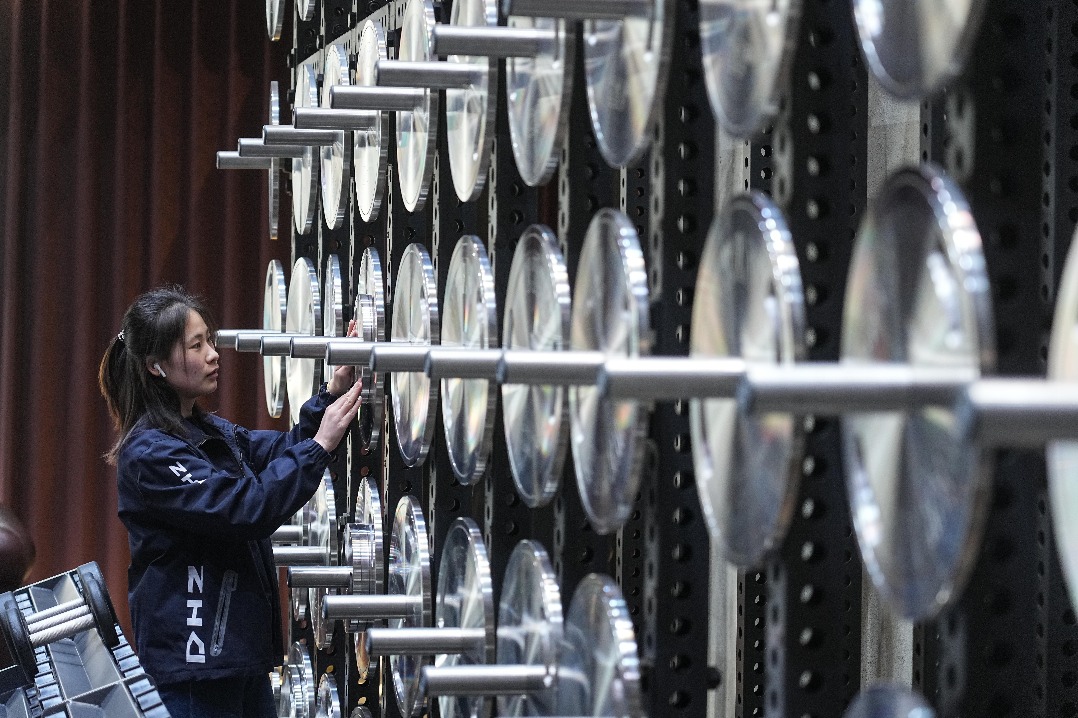NDRC recalibrating steps to drive growth, boost demand


China is poised to introduce additional macroeconomic policies as necessary to further stabilize employment and boost domestic demand, while stepping up reforms to build a unified national market, the country's top economic regulator said on Friday.
Experts said the move underscores a continued policy commitment on both the macro and structural fronts, aimed at sustaining domestic demand and laying a solid foundation for steady economic growth in the second half of the year.
Zhou Chen, head of the department of national economy at the National Development and Reform Commission, said the country will conduct policy research and strengthen reserves of potential measures on a regular basis, continuing to refine the policy toolkit aimed at stabilizing employment and expanding domestic demand.
"In response to changes in the external environment, we will introduce policy measures in a timely manner and coordinate this year's and next year's policy and work priorities, focusing on stabilizing jobs, businesses, markets and expectations," Zhou said at a news conference on Friday.
Speaking at the conference, Wang Renfei, head of the department of comprehensive system reform at the NDRC, said the country will also deepen reforms with a focus on expanding domestic demand and stabilizing the economy.
Drawing on experience gained from introducing private capital into the nuclear power sector, Wang said the commission will step up efforts to promote private investment in areas such as transportation, energy and water conservancy, in a bid to support the growth of the private economy.
According to Wang, the commission will define clearer boundaries for the conduct of government bodies by formulating a list of practices to be prevented that may hinder a unified national market and fair competition.
Efforts will also be made to improve market access in emerging sectors as a set of special measures aimed at easing market entry will be introduced at a faster pace, Wang said.
Zhang Ning, senior China economist at UBS Investment Bank, said future policy stimulus may be data dependent, while the timing of new fiscal support may be around the end of the third quarter or the fourth quarter, if growth momentum slows notably.
Zhang added that he expects the government to roll out a toplevel guideline in the next two to three quarters to navigate the initiative to curb involution-style competition.
Xiong Yi, Deutsche Bank's chief economist for China, said he anticipates that the Chinese economy will grow 4.8 percent this year, with services consumption expected to become a new driver of economic growth and employment in the second half.
Zhou, the NDRC official, said that efforts will be made to boost services consumption — in areas such as culture, tourism, sports events, elderly care, healthcare and child care — and encourage local authorities to reduce consumption restrictions.
According to the commission, the third tranche of the ultra-long-term special treasury bonds designated to support trade-in program for consumer goods — worth 69 billion yuan ($9.6 billion) — has been fully allocated.
The fourth tranche, also worth 69 billion yuan, is scheduled for disbursement in October, which will complete the planned allocation of 300 billion yuan for the year.
This year's project list for major national strategies and security capacity building in key areas, totaling 800 billion yuan, has been fully issued, while 735 billion yuan in central budgetary investment has been largely disbursed, the commission added.
Ouyang Shijia contributed to this story.




































